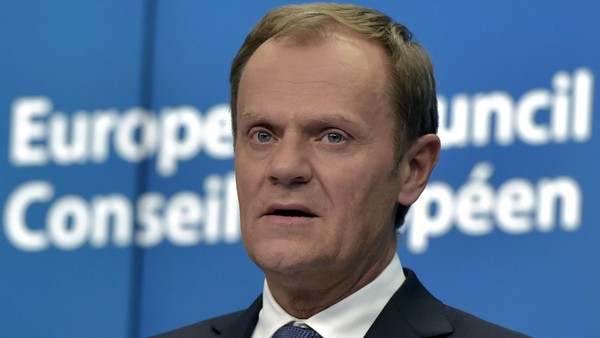希臘局勢,(歐洲)陷在裏麵的國家機構團體企業沒個好歹。打開電視,翻開報紙,沒有任何一方講事實的,都隻說自己的理由。
都有理由。都是無賴。德國好到哪?光是這一鬧,歐元低落,德國公司幾個希臘都賺回來了。
法國?意大利西班牙?逗。
希臘,是唯一讓中國股市鬧劇覺得還沒丟盡臉的一個事件,甚至中國貪官也掩蓋得過去了。你要是找什麽證明民主資本主義必然衰退(未必滅亡),這是最好的例子。

【參見】
為什麽德國不懼希臘退出歐元區?
希臘

(此表不包括國際貨幣基金組織的一份)
詳細解釋的地方的多了,盡管有足夠的了解,也未必能插上什麽嘴,留著給專家們吧。想來想去,覺得最合適的解釋是希臘逗樂單口相聲演員Katerina Vrana的解釋,“都是一筆糊塗賬”。
I'm angry with everyone, in case you were wondering. #Greferendum
這是她在英國廣播公司電台采訪的幾句話(電視台也有,很逗,但找不到視頻,可惜了):
有人覺得希臘投票反歐洲削減條條是表示希臘不還債了,或希臘說退歐元體製了,實際上不是那麽一回事兒。
投支持票,是希臘投降,政府下台,全麵接受賣國條約。投反對票,希臘在歐盟、歐元區的環境一點兒也沒變,希臘不願意推出,其他國家不會因為表決改變主意,隻是希臘政府在國內將反對派壓住了,重新談,最後還得讓步。
換句話說,此次公投,是希臘總理齊普拉斯為了穩固國內地位而設,忽悠了國內百姓,也可以說跟自己打了個賭,如果他自己最後簽署賣國協議,大家隻好接受,與給歐盟、歐元區施加壓力無關。希臘民眾以為自己表了態,實際上很多百姓“支持”票是說支持什麽也搞不清。
還有誰得益了?

今天(7月7日)美國進出口報告,出口銳減。

唉,中國。
【附錄】
希臘真的很窮嗎?
——希臘歸來話債務之一
周東耀
《金融時報》
【默克爾變硬,接受希臘脫歐,從而逼迫齊普拉斯徹底投降。慘。】
2015.07.13
Greece talks: ‘Sorry, but there is no way you are leaving this room’
European Council president Donald Tusk
The closest Greece has come to leaving the eurozone was at around 6am on Monday morning, just as dawn was breaking over Brussels.
Alexis Tsipras of Greece and Angela Merkel, the German chancellor, decided after 14 hours of anguished talks that they had reached a dead end. With no room for compromise, neither saw any reason to carry on. Grexit was the only realistic option.
As the two leaders made for the door it was Donald Tusk, the president of the European Council, who moved to prevent the fatigue and frustration from triggering a historic rupture for the eurozone.
“Sorry, but there is no way you are leaving this room,” the former Polish prime minister said.
The sticking point was the size and purpose of a privatisation fund to be backed by sequestered Greek assets. Ms Merkel wanted the €50bn of sales to be devoted to debt repayments; Mr Tsipras saw that as a national humiliation that would cede control of assets worth almost a third of Greek national income. His alternative was a smaller fund, whose proceeds would be reinvested in Greece.
A compromise was ultimately found after more than an hour discussing nearly a dozen different structures. It was to be the coda to a weekend that featured one of the most exhausting and fraught negotiations in a seemingly interminable crisis that has provided the EU’s sternest test.
After almost nine hours of fruitless discussions on Saturday, a majority of eurozone finance ministers had reached a stark conclusion: Grexit — the exit of Greece from the eurozone — may be the least worst option left.
Michel Sapin, the French finance minister, suggested they just “get it all out and tell one another the truth” to blow off steam. Many in the room seized the opportunity with relish.
Alexander Stubb, the Finnish finance minister, lashed out at the Greeks for being unable to reform for half a century, according to two participants. As recriminations flew, Euclid Tsakalotos, the Greek finance minister, was oddly subdued.
The wrangling culminated when Wolfgang Schäuble, the German finance minister who has advocated a temporary Grexit, told off Mario Draghi, European Central Bank chairman. At one point, Mr Schäuble, feeling he was being patronised, fumed at the ECB head that he was “not an idiot”. The comment was one too many for eurogroup chairman Jeroen Dijsselbloem, who adjourned the meeting until the following morning.
“It was extremely hard, violent even,” said one participant.
Failing to reach a full accord on Saturday, the eurogroup handed the baton on Sunday to the bloc’s heads of state to begin their own an all-night session.
As the hours passed and Sunday turned to Monday, the prospect of a Grexit seemed to grow more probable, participants said, heightening divisions between sleep-deprived politicians and diplomats that have developed over six months of mostly frustrating negotiations.
A senior official in the room believed that Germany was now the country that appeared to be acting in bad faith — no longer the Greek prime minister Alexis Tsipras. At one point, Mr Tsipras had to endure a lecture from Miro Cerar, the Slovenian prime minister, to which Italian prime minister Matteo Renzi objected.
Eventually, François Hollande, the French president who has battled to keep Greece in the fold, ushered Ms Merkel and Mr Tsipras into Mr Tusk’s office to finalise a compromise on the privatisation fund. Although they were ultimately successful, the negotiations appeared to strain the Franco-German relationship long at the heart of the European project.
“There was in Germany a rather strong pressure for a Grexit. I refused that solution,” Mr Hollande told reporters after a deal was reached.
On the privatisation fund, in particular, Mr Hollande gave backing to Mr Tsipras. It was a question of “sovereignty,” the French leader said. “Nothing would have been worse than humiliating Greece, Greece didn't seek charity, but solidarity from the eurozone.”
Mr Hollande also insisted that the possibility of a temporary Greek exit from the eurozone — a controversial initiative Mr Schäuble had managed to insert into the eurogroup proposals — be removed from the final document.
In the end, some bleary-eyed diplomats emerged unsure who had prevailed in the marathon session. But they seemed agreed as to who had suffered most.
“They crucified Tsipras in there,” a senior eurozone official who had attended the summit remarked. “Crucified.”
 Katerina Vrana
Katerina Vrana